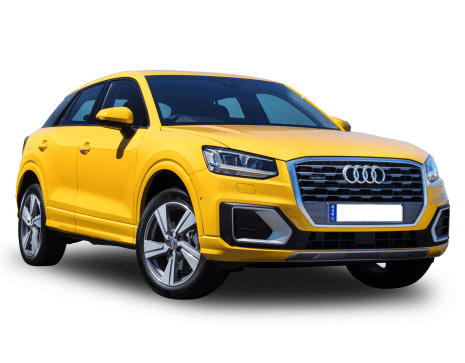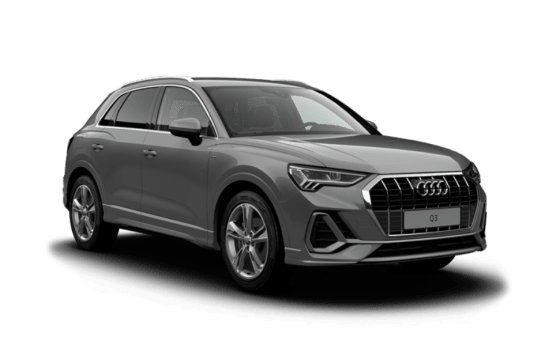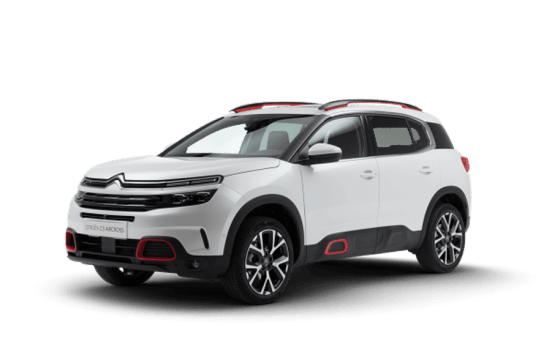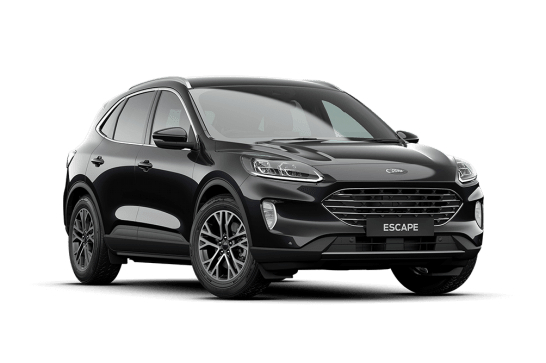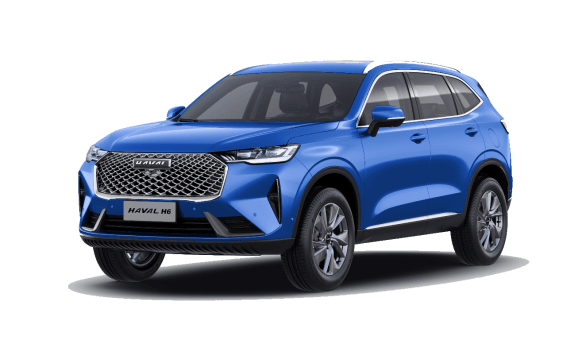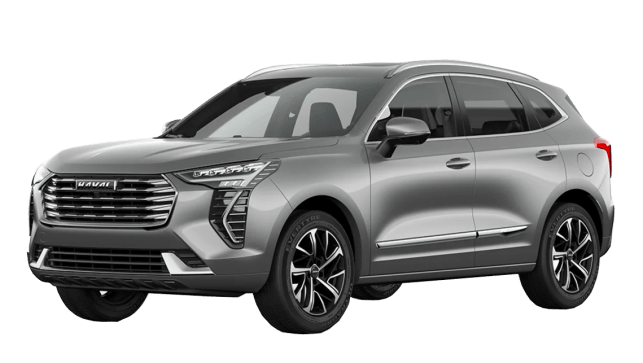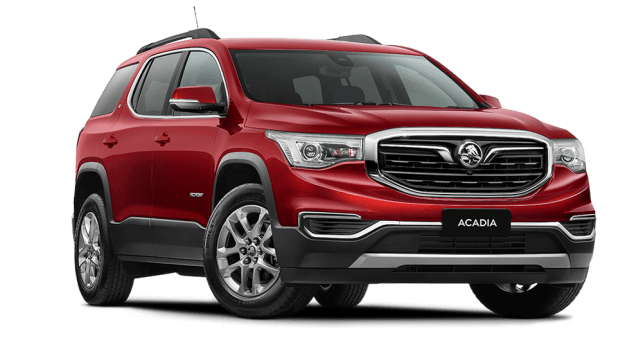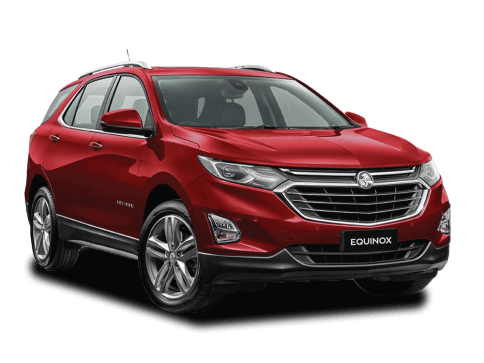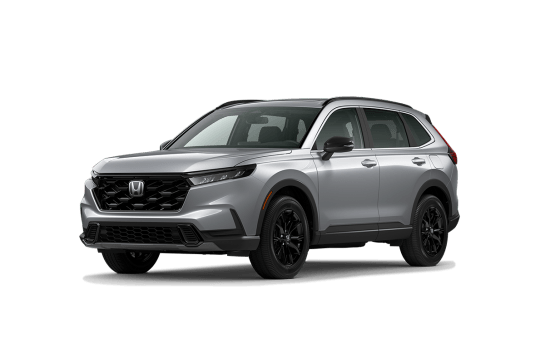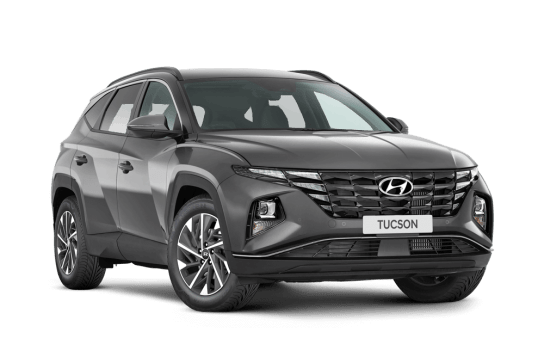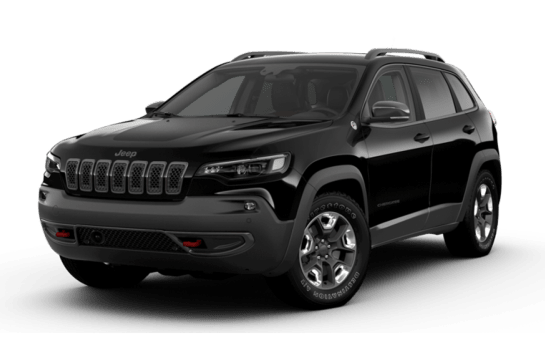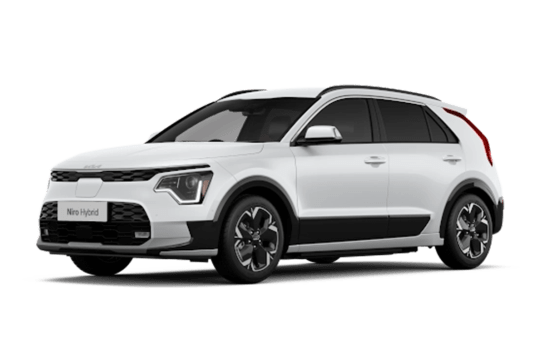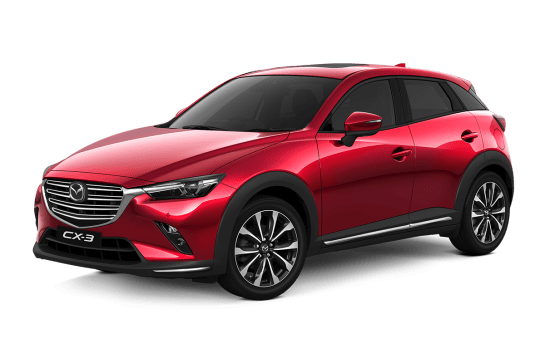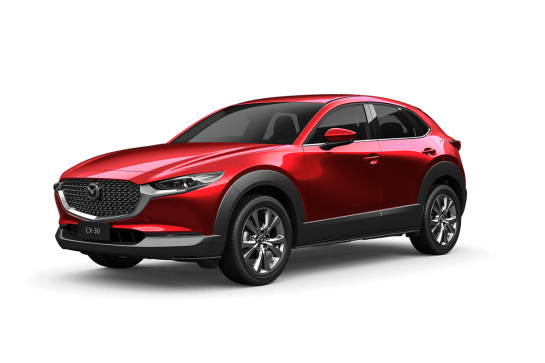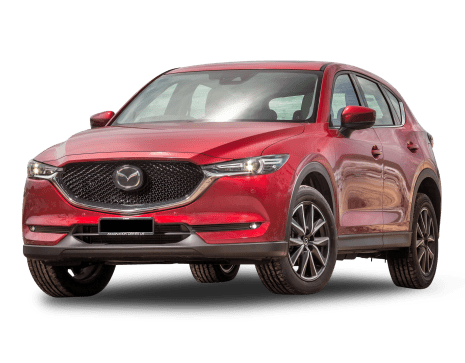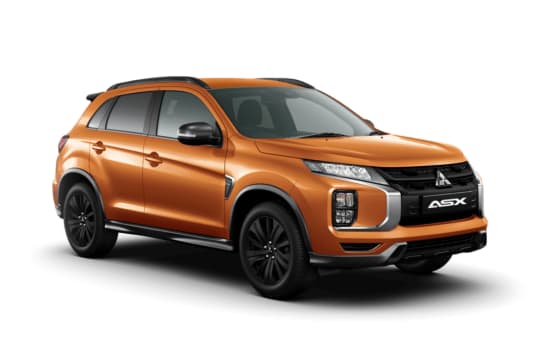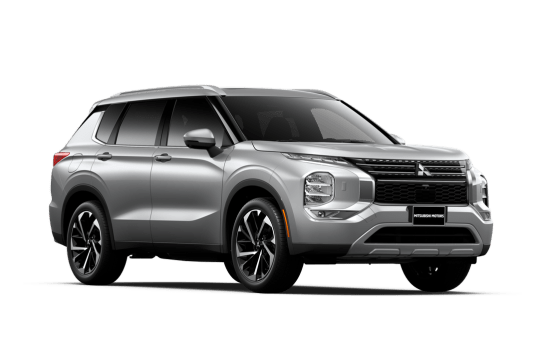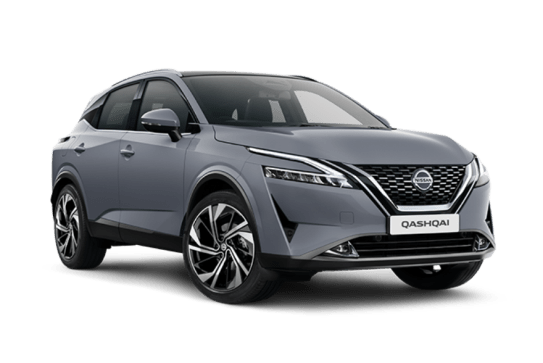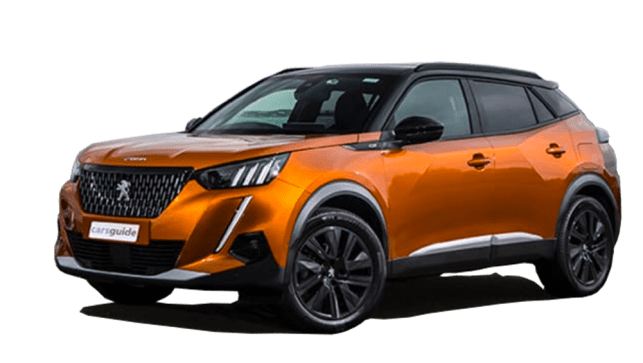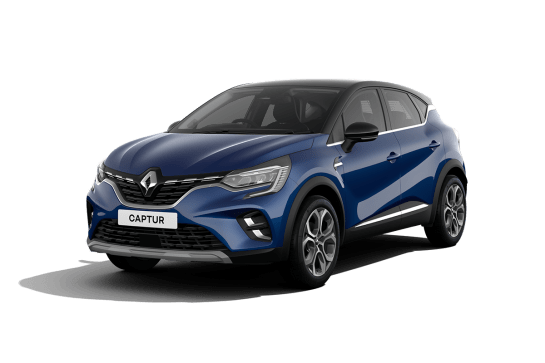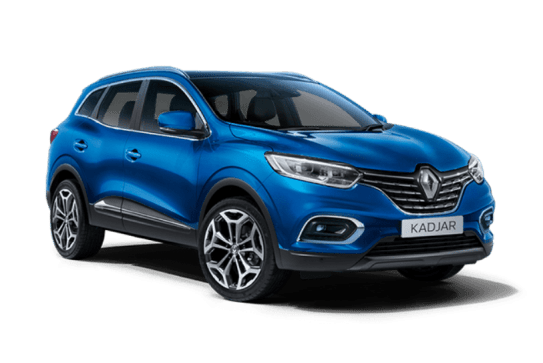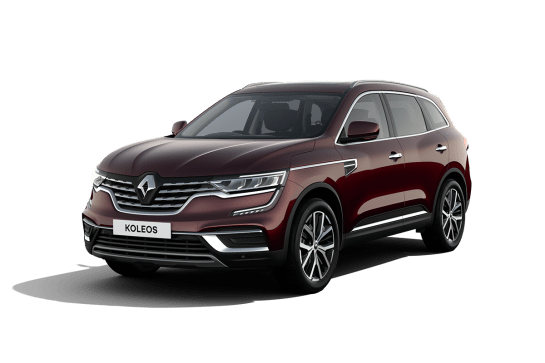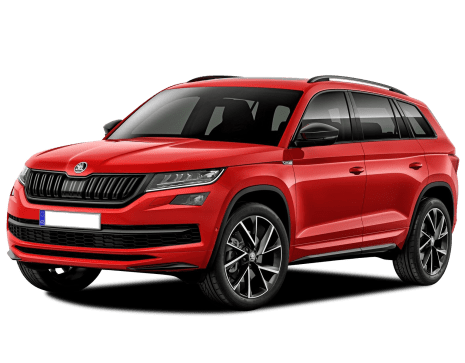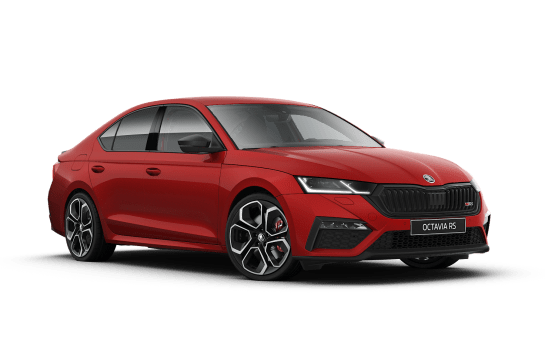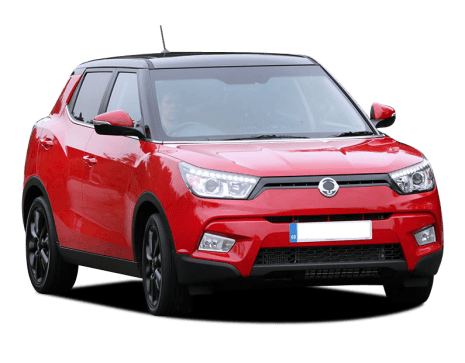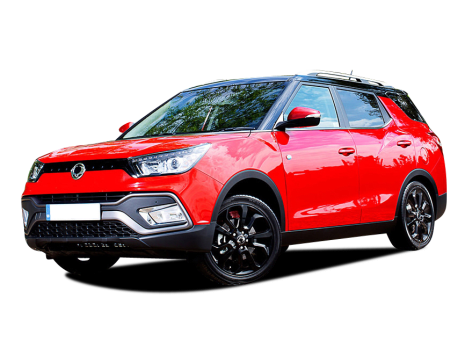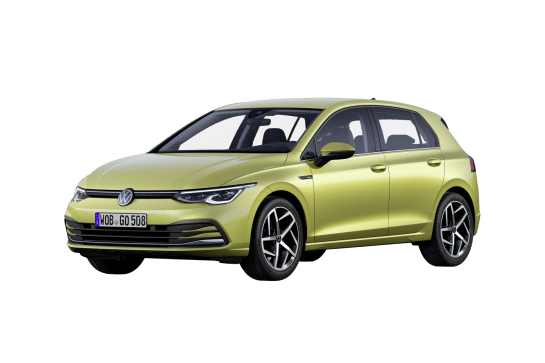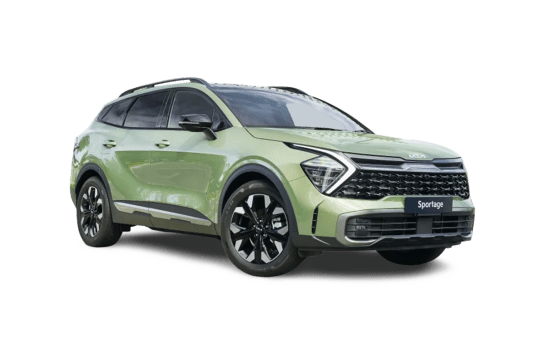
Kia Sportage VS Hyundai Santa Fe
Kia Sportage
Likes
- Great fuel efficiency
- Comfortable and easy to drive
- Interesting design
Dislikes
- Pricey compared to petrol SX
- Capped price servicing costs can be high
- Blank panels for missing features in the cabin
Hyundai Santa Fe
Likes
Dislikes
Summary
Kia Sportage
So, I accidentally climbed into the wrong Kia Sportage in the supermarket car park on Thursday. That’s never happened to me before. You know, actually opening the door of a completely random car and getting into it and putting my seat belt on.
But that’s how much the regular petrol version of the Sportage looks like this new hybrid version.
The owners had parked next to me in their Sportage, which was also silver, while I was in the supermarket. There are lots of questions: Why hadn’t they locked their doors? Why didn’t I notice their Sportage had big roof racks and a giant dent in the side of it? And, why am I telling you this?
Read more about
- 2024 Kia EV5 to undercut Tesla Model Y, Toyota bZ4X and Subaru Solterra on price when the mid-size electric SUV arrives in June
- Farewell, Cerato! 2025 Kia K4 sedan officially revealed but when is the Toyota Corolla, Hyundai i30 and Mazda 3 rival coming to Australia?
- First look at Kia's SUV that will "enhance the accessibility" of electric cars revealed as 2025 Kia EV3 takes aim at BYD Atto 3, Hyundai Kona electric and MG ZS EV
As intriguing as those questions are, we’re not here to answer them right now because this investigation is centred on Kia’s first hybrid version of its Sportage.
Yep, finally after what seems like way too long Kia has a rival to Toyota’s RAV4 hybrid mid-sized SUV.
The Sportage Hybrid on test is the SX grade which sits lower in the range but still costs quite a lot, we think.
So, the questions we’re answering today are ones like, is the Sportage SX Hybrid worth the expensive price compared to its petrol twin?
I’ve even worked out how far you’d have to drive and how long you’d probably have to own the hybrid before you break even on the extra money you’ve spent.
And there are other questions, like how fuel efficient is it? And even others like how safe is it and how practical is it? Oh, and what it’s like to drive? That’s important, too.
| Safety rating | |
|---|---|
| Engine Type | 1.6L |
| Fuel Type | — |
| Fuel Efficiency | 4.9L/100km |
| Seating | 5 seats |
Hyundai Santa Fe
We’re comparing the Kia Sorento Hybrid in the highest spec GT-Line grade and the Hyundai Santa Fe Hybrid in the range-topping Calligraphy spec. Two SUVs so similar they’re pretty much the same, just wearing different clothes.
But there are a couple of crucial differences that might be deal breakers for you when it comes to choosing one over the other. But first, let me give you a bit of background.
The Hyundai Santa Fe and Kia Sorento are direct rivals, but in a sibling rivalry sense as well because both brands are related through a parent company which allows them to share engines and technology, even standard features like stereos and touchscreens.
Read more about
- 'The industry's all about hybrid': Hyundai Australia boss confirms importance of new Tucson Hybrid in taking the fight to the Toyota RAV4 Hybrid, joining Kona, Santa Fe and i30 sedan hybrid models to challenge market leaders
- Updated family favourite spied: 2025 Kia Sportage facelift draws closer as European version of Toyota RAV4 and Mitsubishi Outlander spotted testing - report
- Best SUVs arriving in 2024
So, what you’re really looking at is the best SUVs Hyundai and Kia could independently develop using pretty much the same parts.
The Sorento was updated this year with new tech, improved suspension and some cosmetic changes to keep it looking new.
Thing is, the Santa Fe hybrid in this comparison is the all-new, latest generation version that brings with it a more modern design inside and out and even some safety equipment the Sorento doesn’t have.
And at this point, I'm duty-bound to tell you the Santa Fe has airbags completely covering the third row while the Sorento doesn’t. Didn’t want to bury such vital information further down in the review in case you don't get that far.
Well, with that… let’s get into it.
| Safety rating | — |
|---|---|
| Engine Type | 1.6L turbo |
| Fuel Type | — |
| Fuel Efficiency | 5.6L/100km |
| Seating | 6 seats |
Verdict
Kia Sportage8/10
Okay, this is pretty easy. That SX Hybrid is excellent - it’s fuel efficient, it drives really nicely, it’s practical, but it’s not great value when you consider it’s more than $8000 pricier than the SX petrol. If you want good value, get the GT-Line hybrid. It comes with more features for not that much more money compared to the petrol version.
Oh, and if you’re reading this in three years time and thinking about buying a second-hand Sportage SX Hybrid, then do it.
Hyundai Santa Fe/10
The Hyundai Santa Fe Calligraphy Hybrid and Kia Sorento GT-Line Hybrid are both good value for money, plush, practical and super fuel efficient.
The Santa Fe, however, presents a more compelling case based on its third-row airbag coverage, clever storage and how easy it is to drive.
| Santa Fe Hybrid Calligraphy | Sorento Hybrid GT-Line | |
| Price and features | 9 | 9 |
| Design | 8 | 8 |
| Practicality | 9 | 7 |
| Under the bonnet | 8 | 8 |
| Efficiency | 9 | 9 |
| Driving | 9 | 8 |
| Safety | 9 | 8 |
| Ownership | 8 | 8 |
| Total Score | 8.6 | 8.1 |
Design
Kia Sportage
The Sportage Hybrid SX is almost identical in looks to the petrol Sportage, which is why I mistook somebody else's car for mine. There’s a small badge on the tailgate of the hybrid which says HEV for Hybrid Electric Vehicle, but that’s really the only giveaway.
The Sportage is a more interesting looking SUV compared to less avant-garde rivals like the RAV4. I love the arrow LED running lights, the wide, mesh grille, and the tail-lights.
The cabin is also differently good looking and premium, apart from the blank panels on the centre console - the ones that remind you didn’t get the Sportage with heated seats…
Still, even with the blank panels it’s a premium-looking cabin with the 12.3-inch screen and black materials. It would have been nice if the synthetic leather seats were standard on this SX Hybrid instead of the cloth.
Hyundai Santa Fe
The Santa Fe and Sorento’s standard features are almost identical but these two SUVs couldn’t be more different in their designs.
The Santa Fe is the newer of the two and this fifth-generation model only arrived in Australia this year, so its boxy styling is more on-trend than the Sorento's design which is a little more rounded.
The Santa Fe’s more blocky build looks good to my eyes but more than a few in the CarsGuide office think the 2015 Land Rover Discovery must have been an inspiration, or perhaps it's just a coincidence.
In Hyundai’s defence the rear of the Santa Fe looks nothing like a Land Rover. Its design with the low placed tail-lights and bloated tailgate looks more awkward than me attempting to high-five someone. Apparently if you look at their elbow it helps. High-fiving that is, not the design of the Santa Fe.
This current-generation Sorento arrived in Australia in 2020 and while an update earlier this year added a few cosmetic styling tweaks to try to keep it looking fresh, I think it's a tough looking, handsome SUV even if the smoother, more rounded design is starting to date.
The LED daytime running lights on both cars are distinctive. The Sorento’s, which skirt the bonnet edge before dropping down the side of the headlights, is a Kia design signature seen across its line-up from the tiny Picanto to the EV9 electric SUV.
The Santa Fe’s 'H' design is unique to Hyundai, a theme that’s mirrored in its tail-lights. The Sorento’s Ford Mustang-style tail-lights look good, but could do with an update.
The interiors are just as different as the exteriors with the Santa Fe’s cabin looking more modern and luxurious in its design with some quirky styling touches (Morse Code dots on the steering wheel anybody?) while the Sorento has a sporty and plush but more conservative look and feel.
These are large SUVs with almost matching dimensions. As you can see in the table below the Santa Fe is only slightly taller and longer than the Sorento.
| Santa Fe Hybrid Calligraphy | Sorento Hybrid GT-Line | |
| Score | 8 | 8 |
Practicality
Kia Sportage
The Sportage is a mid-sized SUV - it’s not as big as a Kia Sorento, but it is larger than a Kia Seltos.
There’s plenty of room up front with storage in the centre console, cupholders and door pockets.
The second row has directional air vents and great legroom and headroom even for me at 189cm tall. My nine-year old son reckons the window sill is too high to see out of.
He’s out of his booster seat now but he’s a tall kid and doesn’t have this visibility issue very often as we move from test car to test car.
The boot is also big at 586 litres (VDA) behind the second row. It’ll fit the three-piece CarsGuide luggage set with room to spare.
Hyundai Santa Fe
Not all SUVs are created with equal practicality and even though the Santa Fe and Sorento are much the same in many ways one of these vehicles is more spacious, has better storage and a bigger boot. Oh, and it has two wireless phone chargers, not one.
Yes, it’s the Santa Fe. Not just the more practical one because it’s shaped like a box, although that does have something to do with it. What makes the Santa Fe so much more practical is the interior design with storage more of a priority.
Look at the area under the centre console - there’s a tray big enough for a backpack or handbag. And above it are the two wireless phone chargers, USB ports and cupholders.
There’s the glove box, of course, but above that is a shelf with a grippy surface for keys or wallets and purses. And above that is one of the weirdest contraptions I’ve seen not just in a car, but anywhere - a sterilisation compartment.
It looks like another glove box but it’s actually a space to put anything you want decontaminated - freed from bacteria and germs using UV-C radiation. Stop looking at me like that, I’m serious.
You put your phone in, shut the door, press the UV-C button on the dashboard and 10 minutes later - bing! - your phone is sanitised. Have a look at the video we've made if you still don’t believe me.
The second row of the Santa Fe has excellent legroom, even for me at 189cm tall, and good headroom, too.
For storage, I love the way the centre console box between the driver and front passenger can also be opened from the back by the second row passengers. And below that is a long, deep drawer.
The second row also has door pockets, cupholders and directional air vents, plus USB ports in the sides of the front seats.
Third row seats in SUVs are never the most accommodating for someone my height, but the Santa Fe’s offer good leg and headroom for children. There’s also a USB port on either side along with air vents with fan control and cupholders.
Worth noting the Santa Fe’s large and tall rear doors made putting our toddler into her car seat easier than in the Sorento with its more angular aperture.
The Santa Fe and Sorento have dark-tinted privacy glass for the rear windows and pull-up sunshades.
The six-seat option for the Santa Fe reduces this SUV’s practicality in a couple of ways. Obviously, you lose the capability of carrying seven people, but not being able to have a middle section to slide across to the other side or even just place items on is a problem.
A hire car company might prefer the six-seat option, but if you have a family the seven-seater is the way to go. Not only does it cost less, it's more practical.
The Sorento is by no means impractical, but compared to the Santa Fe there are fewer storage areas in what feels a more compact cabin.
Up front in the Sorento there’s a wireless phone charger forward of the shifter but it’s in a small hidey hole which makes retrieving the phone tricky.
There are USB ports there, too, as well as cupholders and big door pockets. You won’t find a floating centre console with storage underneath as in the Santa Fe, or shelves and there's no sign of a sterilisation compartment.
In the second row the Sorento has little buckets in the doors, bottle holders and more cupholders in the centre folding armrest. USB ports are in the sides of the front seats along with power adjustment controls.
There’s good legroom and headroom in the second row, and directional air vents in the rear of the centre console.
The third row is on the cramped side for me, but most third rows are and they’re really for kids. My eight-year old son wanted me to let you know the windows for back seats in the Sorento are tiny, while the Santa Fe has much larger windows. There are still storage wells, USB ports and fan controls with air vents, though.
The Santa Fe and Sorento both have small cargo capacities when the third row is in place but there's enough space for one carry-on luggage-sized suitcase. With the third-row seats folded flat the Sorento has a volume of 608 litres while the Santa Fe is slightly larger at 628 litres.
| Santa Fe Hybrid Calligraphy | Sorento Hybrid GT-Line | |
| Score | 9 | 7 |
Price and features
Kia Sportage
Let’s get straight to the price because this could be a deal breaker if you’re on a budget and the only reason you’re thinking of buying the hybrid is to save lots of money on your petrol bills.
The Sportage SX Hybrid lists for $45,950. That’s $8400 more than the list price of the same car with a petrol engine.
When I say “same car”, I mean the same SX grade, in front-wheel drive, like the hybrid. The petrol engine in the hybrid is better in every way than the engine in the petrol SX, and that’s probably part of the reason why you’re paying so much more.
Toyota’s pricing on the RAV4 appears more reasonable with hybrid versions costing about $2000 more than the petrol versions of the grade they’re based on.
Do you get more features than the petrol SX? Nope. Same equipment, but there's plenty of it.
Coming standard on the SX Hybrid are 18-inch alloys wheels, LED headlights, and LED running lights. The silver roof rails are standard, too.
Inside the SX Hybrid the seats are cloth and the 12.3-inch media display is standard. So is sat nav, Apple CarPlay and Android Auto, and there’s dual-zone climate control.
That’s not bad if this car was $35K like the petrol version but the hybrid SX is more than $45K and you’re not getting proximity unlocking or push-button start, nor power-adjustable driver’s seat nor power tailgate.
Really, you could buy the SX+ petrol variant for $42 grand and get all of those things, plus a Harman Kardon sound system and synthetic leather seats.
Sure, petrol is expensive these days and a hybrid uses far less, so you’ll make the money back, right? Well, if that’s the reason you’re buying the Sportage Hybrid SX brand new, then don’t. I’ve worked out how far you’d have to drive the hybrid to save $8400 in fuel below.
The only hybrid grade offered is the GT-Line, which is the top of the range and the most expensive Sportage at $55,420. But that’s only $5500 more than the petrol GT-Line and therefore better value in comparison to the SX Hybrid and its petrol twin.
Hyundai Santa Fe
We tested the top-of-the-range Hyundai Santa Fe Hybrid here. It’s the Calligraphy grade with all-wheel drive and although it comes standard with seven seats you can also option it with six (as per our test car) and this means the bench seat in the second row is replaced by two 'captains chairs' for a more luxurious feel.
The list price for the Santa Fe Hybrid Calligraphy all-wheel drive is $75,000 and $500 for the six-seat option, so the MSRP comes out as $75,500.
The Kia Sorento Hybrid we tested was also the fancy one in the range. It’s the GT-Line and also all-wheel drive with a list price of $73,330.
As well as sharing a lot of the same engineering these SUVs have nearly identical standard features lists.
Standard on the Sorento GT-Line Hybrid and Santa Fe Calligraphy Hybrid are LED headlights and LED running lights, roof rails, proximity unlocking, privacy glass, rear side window sun blinds and split-style sunroofs.
Both cabins feature Nappa leather upholstery, the front seats are heated and ventilated, while the second-row outboard seats are heated. There’s dual-zone climate control, too.
You’ll find the same curved, double 12.3-inch displays for media and instruments in each, as well as head-up displays. There’s sat nav, wireless Apple CarPlay and Android Auto, digital radio and both have 12-speaker Bose sound systems.
Both feature wireless phone charging but only the Santa Fe can charge two phones wirelessly at the same time. The Santa Fe also has a sterilisation compartment. Sounds weird and is weird… I’ll show you how it works in the practicality section.
| Santa Fe Hybrid Calligraphy | Sorento Hybrid GT-Line | |
| Score | 9 | 9 |
Under the bonnet
Kia Sportage
Normally we cover the design and practicality before we get under the bonnet but you’re on a fact-finding mission and I’m your guide, your guide to cars. That would be a good website name.
Okay, the Sportage SX Hybrid has a 1.6-litre turbo-petrol sporty and fuel-efficient engine making 132kW and 265Nm. There’s also an electric motor producing 44kW and 264Nm. Their combined output is 169kW/350Nm.
The hybrid variants are front-wheel drive only and have a six-speed automatic transmission.
It’s a great engine, smooth transmission and the way the motor interacts is almost seamless.
This isn’t a plug-in hybrid, either. The batteries recharge automatically through regenerative braking. Really, for Australia, this type of hybrid is the way to go, offering superb range and no anxiety about charging.
Hyundai Santa Fe
The Santa Fe hybrid and Sorento hybrid share very similar drivetrains - they both have a four-cylinder petrol engine paired with an electric motor and a six-speed automatic transmission with all-wheel drive.
While the drivetrains are virtually identical (because both companies share engines, transmissions, motors and other engineering technology) Hyundai says the hybrid system in the Santa Fe is a generation ahead of the Sorento's.
Hyundai claims its set-up produces more power and torque, but we felt no noticeable difference in the outputs when we drove them back-to-back. You can see all the output figures in the table below.
These hybrids are also not plug-in hybrids - they will recharge through regenerative braking, which means you don’t have to worry about charging - it’ll do it for you automatically. It’s the easiest kind of hybrid to live with.
So, how much fuel will you use? Let’s talk about that.
| Santa Fe Hybrid Calligraphy | Sorento Hybrid GT-Line | |
| Score | 8 | 8 |
Efficiency
Kia Sportage
Kia says that after a combination of open and urban roads the Sportage SX Hybrid will use 4.9L/100km. The petrol SX with the 2.0-litre engine and front-wheel drive uses 8.1L/100km.
In our own fuel test we recorded 6.9L/100km which was mostly urban with a couple of motorway trips during the week.
Getting back to our earlier question regarding the money you’ll save in fuel. I’ve worked it out using actual maths.
So, using Kia’s official fuel economy of 4.9L/00km, that’s 3.2L/100km less than the 2.0-litre petrol SX and if fuel is $2 per litre you’re saving $6.40 for every 100km you drive in comparison.
Now, $6.40 goes into $8400 (the extra you’ve paid for the hybrid) 1312.5 times. Multiply that by 100 to get the number of kilometres you’ll need to travel. So, that’s 131,250km you’ll need to go to save the $8400 in fuel.
Most Aussies do 10,000 kays a years on average. That means you’re looking at over 13 years. Tell you what, the person who buys it second hand will get the best deal because they really will save money on fuel.
It’s true the Sportage Hybrid is fuel efficient and I’ve scored it very well for that, but if it was me I’d be looking to buy one second hand so I wasn’t getting hit hard with the new car hybrid price premium.
Hyundai Santa Fe
We take testing the manufacturer’s fuel efficiency claims seriously and don't take their word for it.
We filled the fuel tanks of the Sorento and Santa Fe with the recommended 91 RON petrol, then set out on a 100km test covering city and urban traffic, motorways and country roads to approximate the combination of conditions an owner would encounter. We then measured the amount of fuel used over the distance to calculate the fuel consumption.
As you can see from the tables below we achieved better results than the manufacturer claims and both of these hybrid SUVs use almost exactly the same amount of fuel. These are large SUVs consuming about 5.0L/100km. That’s outstanding fuel economy.
Not having to plug these kinds of hybrids into an external power source to charge makes them very easy to use. There’s nothing to do, they charge automatically and after a while you’ll just forget it's a hybrid.
| Santa Fe Hybrid Calligraphy | Sorento Hybrid GT-Line | |
| Score | 9 | 9 |
Driving
Kia Sportage
The Sportage SX Hybrid is better to drive than the petrol SX with the 2.0-litre naturally aspirated engine. It starts silently thanks to the electric motor and will coast away serenely until you need to move faster and come to a hill where you need the power of the engine.
The brake pedal feel is better than I’ve experienced in many hybrid cars and the transition from engine to motor is almost seamless.
The ride is comfortable, there’s no jiggle over potholes and handling isn’t bad for this type of family SUV.
The only negative point to report is that because the hybrid Sportage is front-wheel drive, there can be a loss of traction if you accelerate hard from a standstill on a wet road or while climbing a steep hill.
If you’ve never driven a hybrid before, you’ll be absolutely fine - the only thing you'll need to get used to is turning the key and not detecting any engine noise.
Hyundai Santa Fe
You’d imagine these two closely-related SUVs with the same engines, same vehicle platform and same standard features would drive the same.
They don’t. We drove them back-to-back for two days on motorways at 110km/h, course-chip country roads and even at walking pace around car parks.
Both are extremely comfortable and composed across every type of road condition. The Sorento, however, has better handling for a sportier drive while the Santa Fe has a ‘floatier’ feel for a more luxurious experience.
An interesting fact for you is that Kia has a local engineering team which tests and develops the Sorento’s suspension for Australian conditions, constantly improving the ride and handling.
The latest retuning was done for this version of the Sorento which was updated this year.
Hyundai also had a local engineering team but doesn’t anymore. Instead, the local subsidiary is most often given a choice of suspension tunes used in other markets in the hope it will work well on Australian roads. The Santa Fe has a 'global' tune.
The hybrid powertrains feel equally matched despite the Hyundai’s slightly higher combined output. Neither feels underpowered and for regular duties they perform well with a smooth transition from motor to engine that only becomes noticeable on hills where electric power isn't enough and petrol has to come to the rescue with a relatively abrupt shove.
If you’re after a sporty experience the Sorento is for you, but I found the Santa Fe’s higher driving position, light steering, more luxurious ride and better visibility through larger windows makes for an easier SUV to drive day in and day out.
| Santa Fe Hybrid Calligraphy | Sorento Hybrid GT-Line | |
| Score | 9 | 8 |
Safety
Kia Sportage
In terms of safety the Sportage was awarded the maximum five-star ANCAP rating in 2022. The SX Hybrid has pretty much the same safety tech as the GT-Line. So there’s AEB, lane keeping assistance and a rear cross-traffic alert. There are also front and rear parking sensors
For child seats there are two ISOFIX points and three top tether anchor mounts across the second row.
Disappointingly Kia has swapped the full-sized spare alloy wheel you’d get in the petrol and diesel variants for a space saver spare in the hybrid.
Hyundai Santa Fe
At the start of this review I pointed out some crucial safety information about these SUVs. This new-gen Santa Fe has side curtain airbags which fully cover the occupants in the third row, while the Sorento does not.
For many parents, including me, that could be a deal breaker especially if that's all that separates these two similar SUVs.
Still, the Sorento is a very safe vehicle and scored the maximum five-star ANCAP assessment in 2020. The Santa Fe is still so new that its ANCAP rating isn’t in yet, but there’s nothing to suggest it wouldn’t score five stars, too.
Both SUVs have a large amount of advanced safety technology including AEB which can detect pedestrians, cyclists and other cars, lane keeping assistance, blind-spot warning and rear cross-traffic alert with braking.
For child seats both cars have two ISOFIX points in the second row and two in the third. There are also top tether anchor points for each of the seats in the second and third rows.
Both provide full-sized alloy wheels located under the vehicle.
| Santa Fe Hybrid Calligraphy | Sorento Hybrid GT-Line | |
| Score | 9 | 8 |


